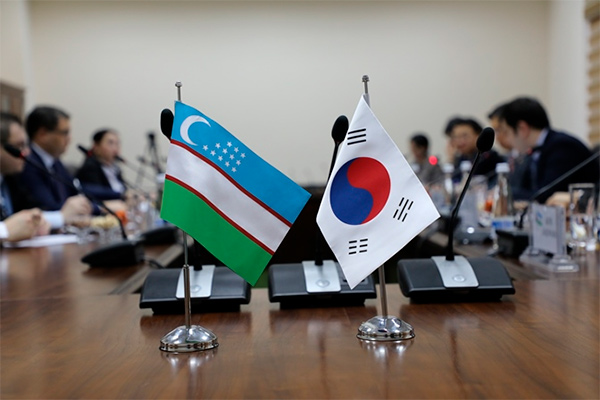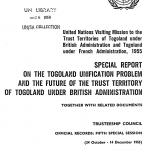South Korea seeking to develop the ‘northern’ vector of geo-economic cooperation quite intensively intends to keep strengthening its positions in Uzbekistan. By the end of the current year the states plan to launch negotiation process on the creation of a bilateral free trade zone.
Seoul and Tashkent understand that the implementation of this project will significantly strengthen South Korea’s positions both in Uzbekistan and the region. The new level of cooperation will give Seoul more opportunities for further geo-economic expansion to the Central Asian countries.
South Korea needs and will always feel the need of resources. Here we mean both natural mineral resources and labor resources. Uzbekistan possesses both of them. Despite the great influence of China and Russia in the region, South Korea is trying to strengthen its positions in this state and receive the opportunity to expand economically. So far, this process is successful.
At the end of 2019, turnover between Uzbekistan and Korea increased by 27%, the record result for a five years. At the same time, Tashkent and Seoul are setting an ambitious goal to double the actual turnover by 2023. As of now South Korea has ranked the fourth in trade given the place to China, Russia and Kazakhstan. Seoul is one of the three leading countries on import to Uzbekistan.
Investment activity is one more direction of cooperation. An investment package of 79 priority investment projects totaling $17.3 billion was presented this summer. The package covers more than raw materials although Seoul is undoubtedly interested in it. Koreans invest in mechanical engineering, pharmaceuticals, petrochemicals, construction, and electrical engineering. This investment approach differs South Korea from its key competitors, China and Russia, who are mainly focused on raw materials. As for Uzbekistan who is trying to reduce imports and increase exports creation of industries with a higher level of added value is more than profitable.
Today, more than 660 Korean-invested enterprises work in Uzbekistan, including more than 350 companies with 100% foreign capital. Uzbekistan is a showcase for Korean investments in the region. The Ustyurt Gas Chemical Complex operating at the Surgil gas field is the major investment. Koreans are also active in investing in the Uzbek production of textiles. This is important for a country seeking to stop exporting raw materials, especially raw cotton. Seoul invests in road construction, the automotive industry, logistics, green energy, chemical and jewelry industries. The humanitarian area is also actively developing, in particular, healthcare sphere.
Seoul is showing interest in Uzbek uranium deposits. The supply contract was signed in 2017. Moreover, Koreans are extremely interested in gold and tungsten and are actively involved in exploration and production. Korea also trains Uzbek mining industry specialists.
In addition, the labor force of Uzbekistan is one more of South Korea’s sphere of interest. This state is one of the Uzbek main labor migration destinations where its citizens are up to 3% of the total number of foreigners. At the same time, the number of the Uzbek students is very significant. Thus, obviously that Seoul is considering Uzbekistan as a potential donor in terms of labor force, including highly qualified specialists. Tashkent is interested in the labor market diversification since Russia’s demands for workforce from Uzbekistan will be less and less.
The region is characterized by a high level of competition for resources; therefore, Korean companies are unlikely to enter the markets of other states in the region so quickly and efficiently. Koreans are most active in Kazakhstan but yet they cannot compete with such giants as China and Russia.
As of now Uzbekistan is the only country where Seoul succeeds to expand effectively over time. However, South Korea faces with highly competitive China and the EU. The Uzbek elites are trying to combine interests of these states and build the strategy that would equally reflect the Chinese ‘New Silk Road’, positions and interests of the West, Japan, as well as the South Korean ‘new northern political vector’. As practically such a symbiosis is far from reality Uzbekistan will be in the thick of the struggle of states fighting for resources.
Unlike China who sees the region as a whole, Korea is building bilateral relations. Moreover, unlike the Chinese, the Koreans are not mainly interested in the raw material sector that is positively taken by the Central Asian elites. Today the positions of the US and the EU in the region are not as strong as they were before. At the same time, although Russia is trying to strengthen its position in Uzbekistan, it is too weak to implement its plans effectively.
In this context the beginning of the negotiation process on a bilateral free trade zone is a good continuation of strategic cooperation between Tashkent and Seoul. However, because of the high competition for influence in the region the talks are unlikely to pursue quickly and smoothly. However, the process itself intensifies trade and investment contacts and projects of the parties. Thus, in the short term, South Korea can significantly strengthen its positions in Uzbekistan.




